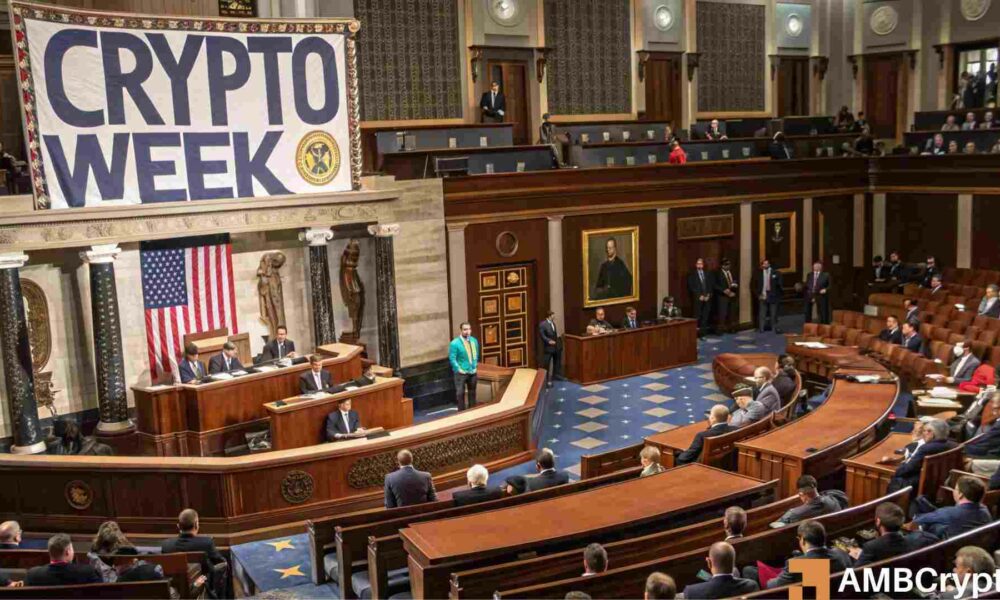Republican Lawmakers Push for Key Crypto Bills This Summer
The political landscape surrounding cryptocurrency regulation is intensifying as Republican lawmakers aggressively seek to advance critical crypto legislation this summer. Particularly in focus is the GENIUS Act, which is expected to streamline regulatory operations within the stablecoin market. This effort comes following the recent passage of the budget reconciliation bill, marking a strategic pivot towards addressing cryptocurrency in legislative sessions.
A Planned Crypto Week
The House of Representatives has taken substantial steps to prioritize the crypto agenda, designating a “crypto week” from July 14-18 where several pivotal bills will be considered. House Committee Chair French Hill and House Agriculture Chair Glenn Thompson have expressed their commitment to bringing crucial legislation, including the CLARITY Act and the anti-CBDC (Central Bank Digital Currency) bill, to the forefront during this dedicated week of discussions. House Speaker Mike Johnson reiterated this initiative, emphasizing its alignment with President Donald Trump’s digital assets strategy. The focus is clear: to provide a regulatory framework that accommodates innovation while ensuring consumer protection.
The GENIUS Act: A Legislative Milestone
Among the key pieces of legislation is the GENIUS Act, which focuses on providing regulatory clarity within the stablecoin market. This bill successfully passed the Senate on June 17 and was brought to the House on June 23. If it gains approval in the House, it will advance to the President’s desk, likely by the third quarter of this year. However, experts from Pillsbury Law have warned that amendments could be proposed in the House, potentially delaying the process further. Such changes would necessitate a return to the Senate for confirmation, which could push the timeline back significantly, possibly to late 2026.
The CLARITY Act: Bipartisanship in Action
In an additional bid for regulatory cohesion, the CLARITY Act aims to address the broader crypto landscape and is a result of bipartisan collaboration. This legislation comes as a response to heightened enforcement actions from the Biden-era SEC (Securities and Exchange Commission) that have raised concerns about the classification of digital assets. The CLARITY Act strives to define the distinction between securities and non-securities in the context of digital assets, establish unified oversight across agencies, and foster an environment that encourages innovation while safeguarding consumers’ interests.
Timing and Expectations
Having first been introduced in May, the CLARITY Act has gained traction within committees and is now poised for a critical vote on the House floor during “crypto week.” Analysts, including recognized crypto and AI czar David Sacks, have heralded this progress as a significant development. Sacks is optimistic about the GENIUS Act making its way to the President’s desk shortly after the week-long series of discussions, though it remains to be seen if the bill will truly move forward without any amendments.
Implications for the Future
As these legislative activities unfold, the implications for investors and the wider crypto market are profound. Regulatory clarity can introduce stability, which may, in turn, foster more robust investment in cryptocurrencies and blockchain technologies. However, the possibility of amendments and delays introduces an element of uncertainty, with potential ramifications for stakeholders looking to capitalize on future opportunities within the digital asset space.
Conclusion: A Pivotal Moment for Crypto Regulation
In summary, the coming weeks are crucial for the advancement of crypto legislation as Republican lawmakers take assertive actions to align regulatory frameworks with innovation in the digital asset sector. With key bills like the GENIUS Act and CLARITY Act on the table, the potential for growth and consumer protection within the crypto landscape is significant. The outcomes of this “crypto week” will likely set the stage for the future of digital assets in the United States, marking a pivotal moment for both lawmakers and the cryptocurrency market as a whole. As with any legislation, the focus will need to remain on balancing regulation with the needs of an industry in constant evolution.


